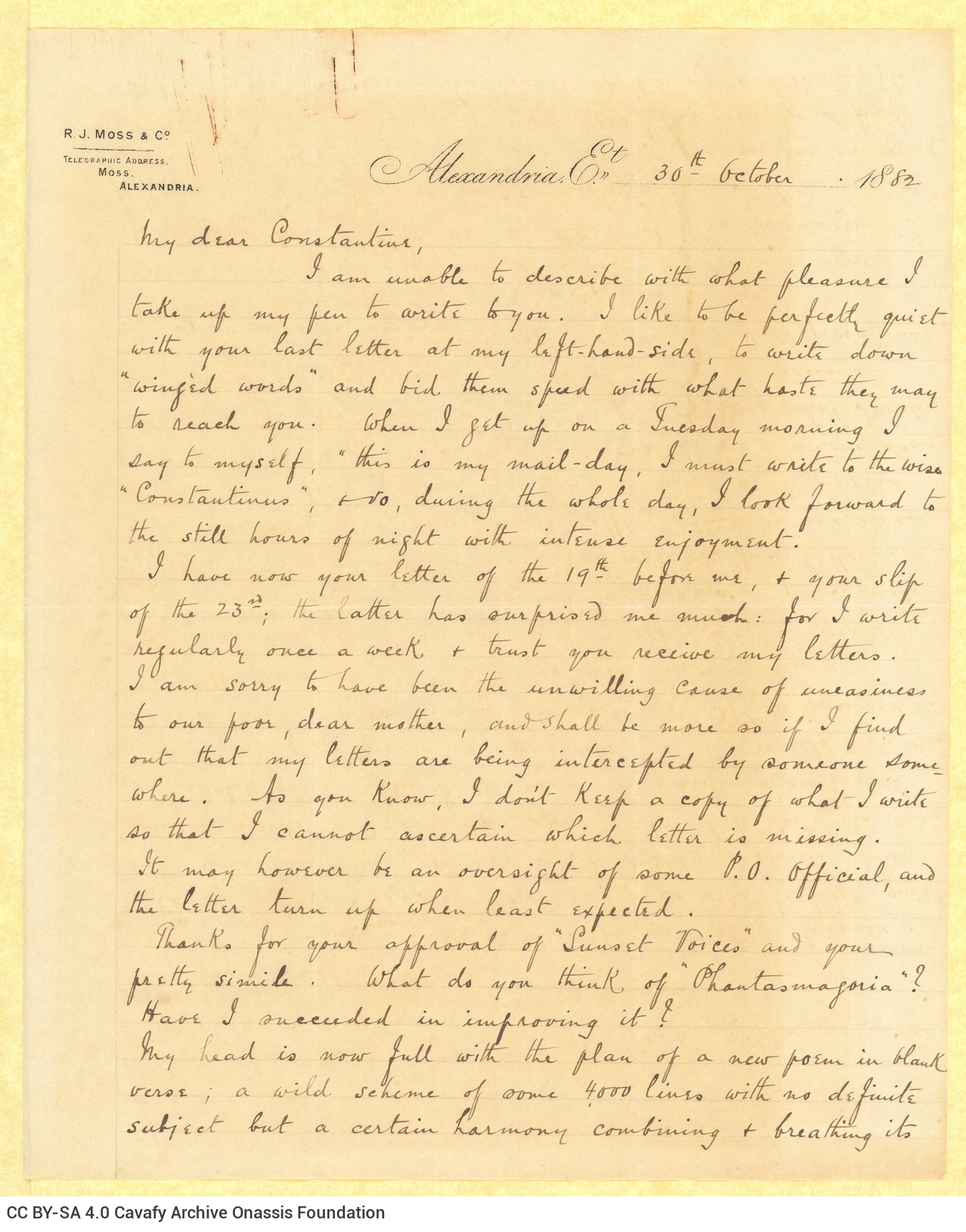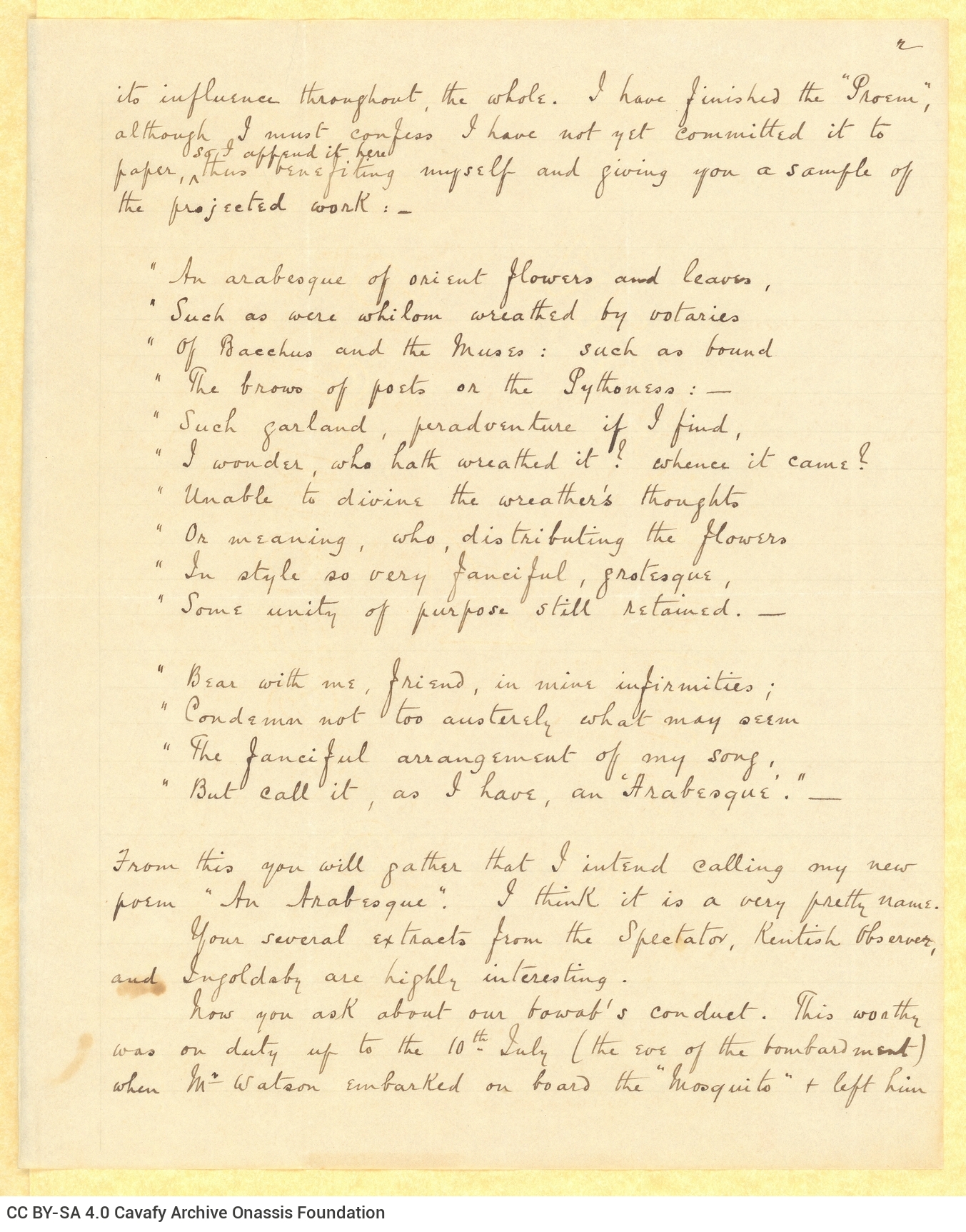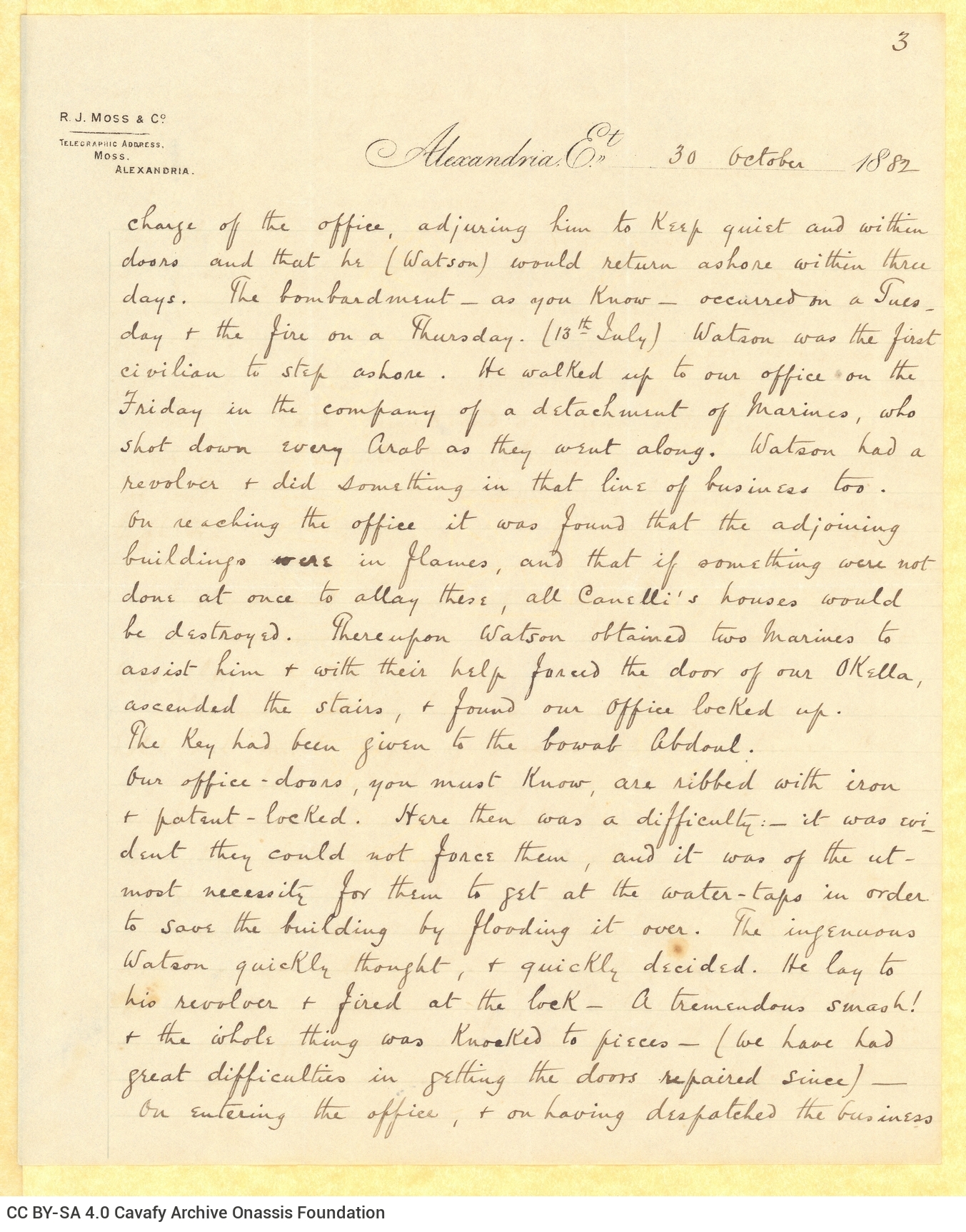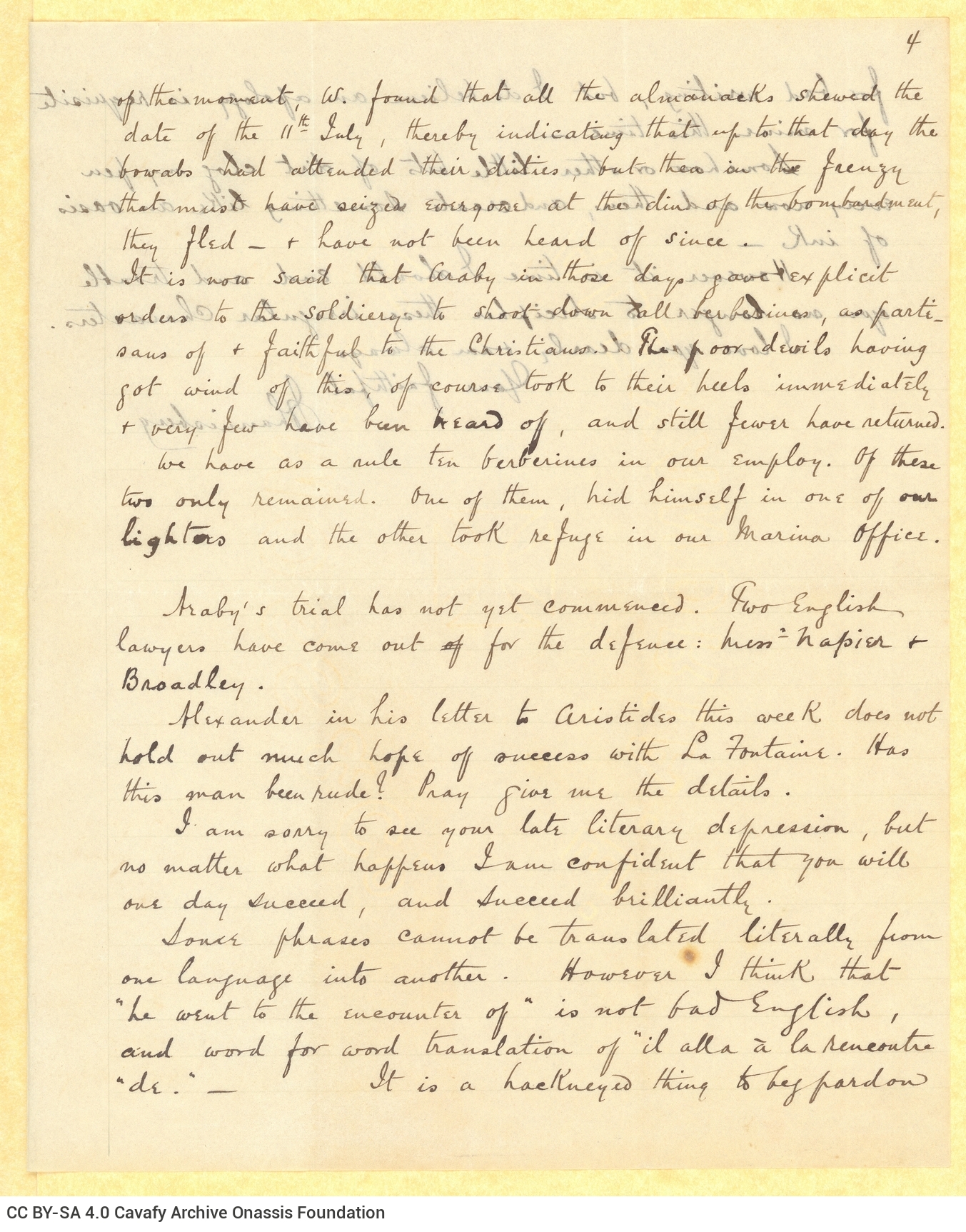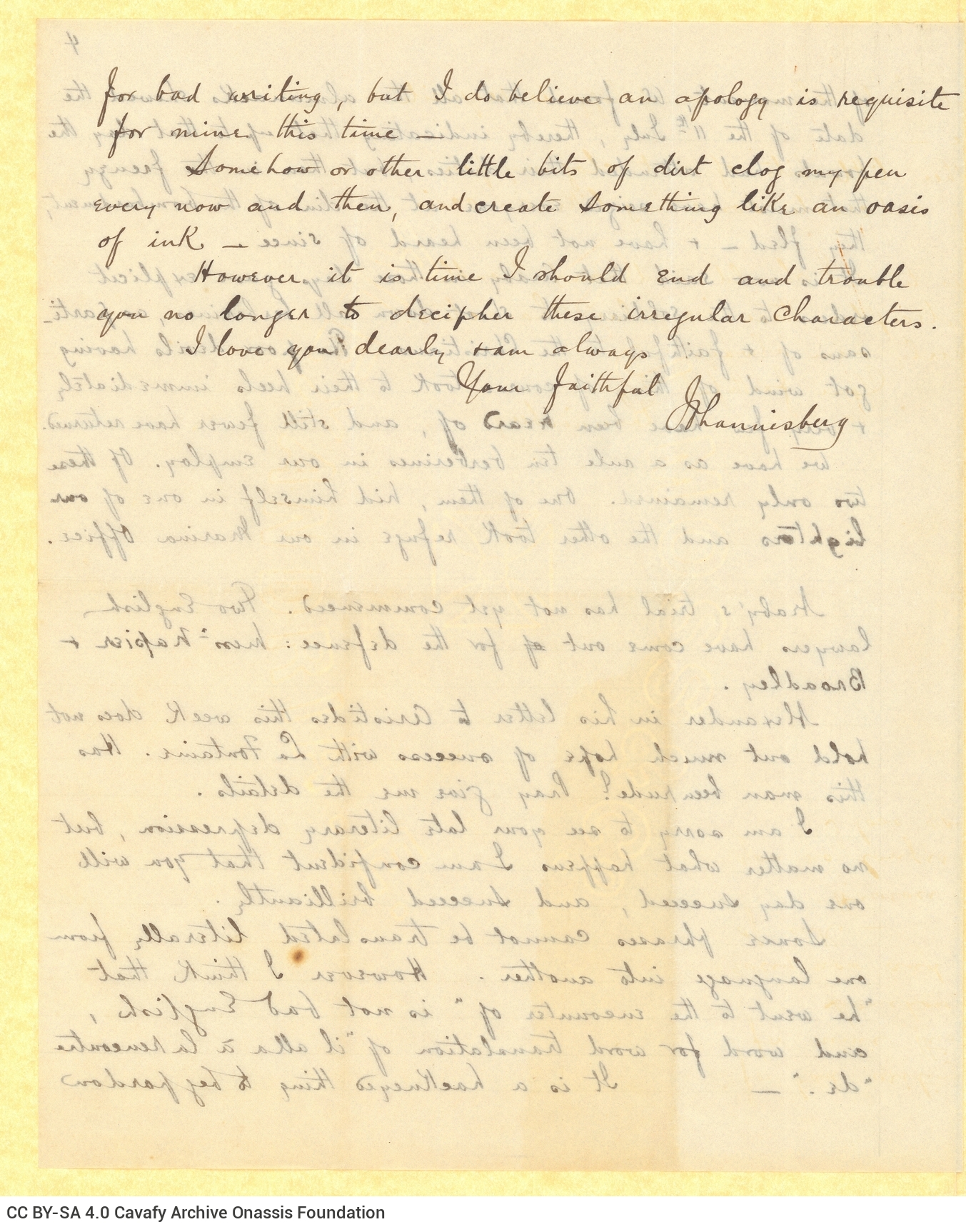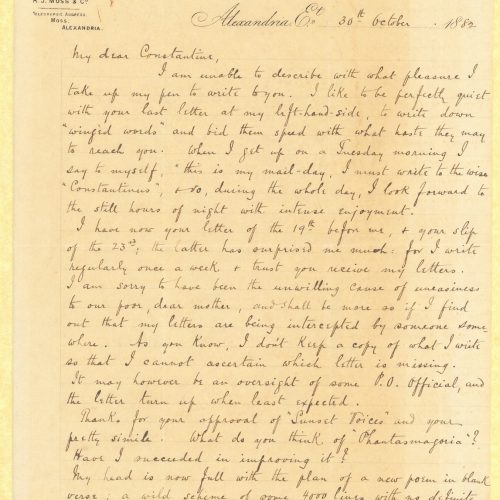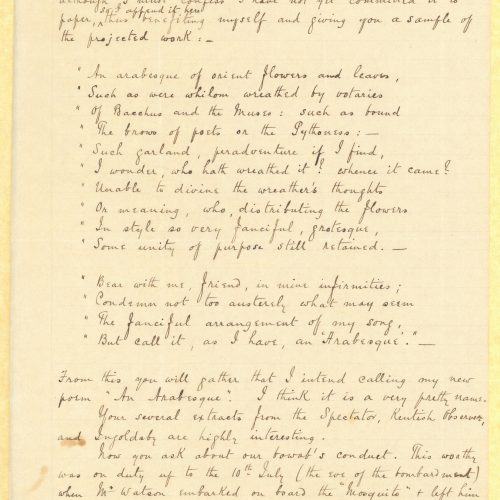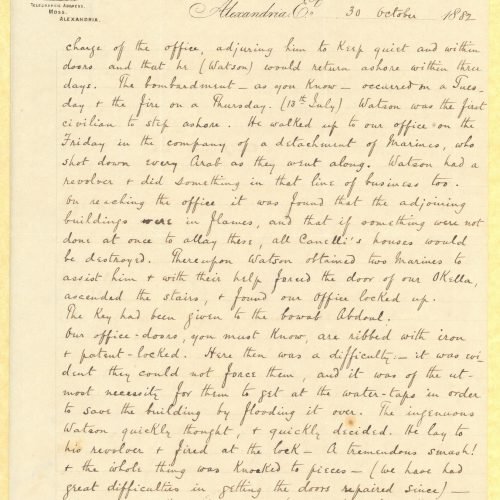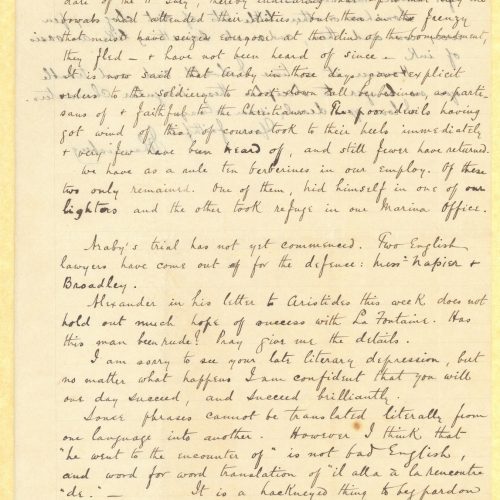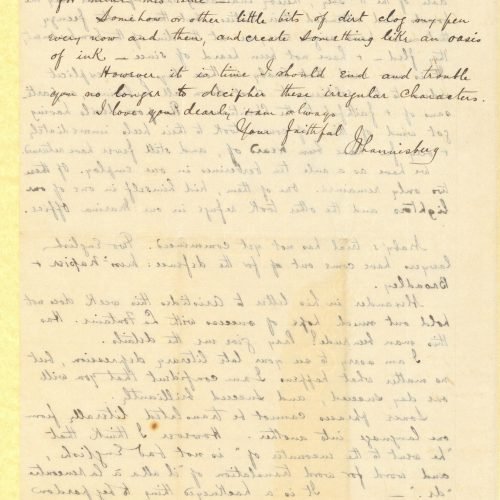υπογράμμιση
υπογράμμιση
πράσινη γραμματοσειρά
κίτρινη γραμματοσειρά
κόκκινη γραμματοσειρά
DIGITAL OBJECT DESCRIPTION
IDENTITY AREA
43.5 x 27 cm
CONTEXT AREA
CONTENT AND STRUCTURE AREA
Handwritten letter by John Cavafy to C. P. Cavafy, on two double sheet letterheads of R. J. Moss & Co., Alexandria. Pages 2-4 are numbered at top right. Comments on John’s poems and excerpt from one of them. Update on the political developments in Egypt.
CONDITIONS OF ACCESS AND USE AREA
English
Writing in ink. Watermark: R. J. Moss & Co Alexandria. Physical item wear: oxidations.
NOTES AREA
The transcription and editing of the letters of John Constantine Cavafy addressed to C. P. Cavafy was first carried out by Katerina Ghika; said transcriptions were subsequently uploaded to the official website of the Cavafy Archive.
Cavafy comments favourably on John’s “Sunset Voices”, while the latter awaits his brother’s critique on “Phantasmagoria”. John copies some verses from a new poem of his entitled “Arabesque”. Reference to blank verse.
ACCESS POINTS
Cavafy, John Constantine. “Letter by John Cavafy to C. P. Cavafy”. Letter, 30.10.1882. GR-OF CA CA-SF02-S01-SS02-F20-SF001-0009 (384), Onassis Foundation C. P. Cavafy Fonds. From The Digital Collection of the Cavafy Archive, edited by Onassis Foundation, Athens, last modified 01.10.2025. https://doi.org/10.26256/CA-SF02-S01-SS02-F20-SF001-0009.
